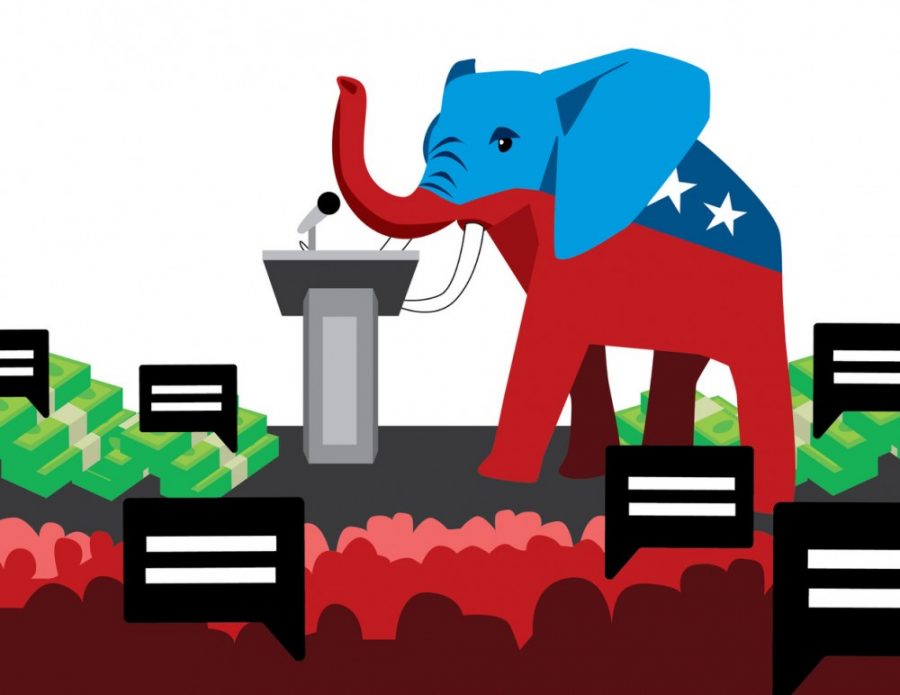President Donald Trump’s recent executive order linking federal funds to college protections for free speech has stirred uncertainty at the University of Minnesota, with some on campus questioning how the policy will be enforced.
The order requires that colleges’ federal money promote “free inquiry” and directs federal agencies to take away research grants for institutions that fail to comply. That means the University and other public schools must uphold the First Amendment, which they are already legally obligated to do.
For some in higher education, Trump’s order seems redundant; others say it raises concerns about federal officials deciding the boundaries of free speech on campus.
The University declined to comment, but a spokesperson said the school supports a statement from Association of American Universities calling the executive order, “a solution in search of a problem.” Others in higher education expressed similar reservations: the American Council on Education said the order is “unnecessary and unwelcome.”
University chemistry professor Phil Buhlmann said many faculty members are anxious to see how federal officials determine if schools are in violation.
“In principle, we all agree with it that there should be free speech. There’s no question about that. I think the questions lies in ‘How is this going to be interpreted?’” said Buhlmann, the vice chair of the Faculty Consultative Committee.
Trump’s direction gives pause to some of the staunchest supporters of free speech on campus, including the nonpartisan nonprofit Foundation for Individual Rights in Education.
“We are grateful for the recognition that there is a problem with censorship on campus. [But] we are in full wait-and-see mode with whether the purported cure will be any better than the malady,” said Will Creeley, FIRE’s senior vice president of legal and public advocacy. “The devil will truly be in the details here.”
Creely said FIRE believes issues of free speech should stay in the courts’ hands, rather than those of government officials who “do not necessarily understand the careful balance that courts have stuck in fashioning First Amendment doctrine.”
Trump’s decision was applauded by conservatives who have claimed that campuses across the country are hostile environments to their viewpoints, according to The New York Times. During the order’s signing, Trump said he wanted to to stop campuses that try to prevent conservatives “from challenging rigid, far-left ideology.”
The treatment of conservative-leaning speakers at large public universities has become a hot-button issue in recent years. At the University, several incidents involving conservative students have sparked controversy about free speech on campus.
Conservative student groups are currently suing the University for its handling of an on-campus lecture by Ben Shapiro last year, claiming the school violated the First Amendment by hosting the conservative speaker on the St. Paul campus. The University claims it chose the venue because of security concerns.
Though the University does a pretty good job of promoting conservative viewpoints, freshman geography major Addison Scufsa said, “You can’t really share your conservative opinions very loudly. … Generally I just tried to keep my opinions to myself when it comes to in-class discussions.”
But Scufsa, a member of College Republicans, doesn’t see Trump’s order having much of an impact. “I just don’t see the University needing to make these changes, because I think they already do a lot of what Trump put in it,” he said.
History junior Isaiah Ogren, who describes his views as left-of-center, called the executive order “totally superfluous.”
“I feel perfectly comfortable expressing my viewpoint at the University of Minnesota. I do not think freedom of expression is under assault at our campus or broadly speaking at campuses across the nation,” said Ogren, who’s speaking at an upcoming event on free speech at the Humphrey School of Public Affairs.
To some faculty members, the executive order seems like it could have the opposite effect on free speech.
Carlson School of Management professor Rachna Shah, a member of the Academic Freedom and Tenure Committee, said she worries faculty may “toe the line” when it comes to sharing political views for fear of losing out on grant money. She said the order could be “a way to have free speech curbed.”
Buhlmann agreed, saying he worries some on campus will avoid teaching certain topics because of Trump’s decision: “There is certainly a concern here that any action around this executive order by itself could hurt free speech and academic freedom.”

















